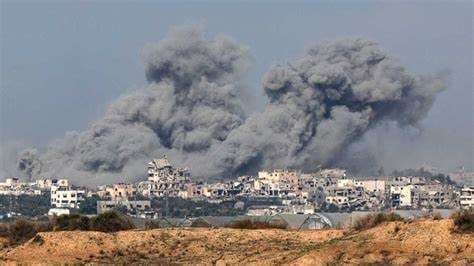Egypt has reaffirmed its commitment to securing a renewed ceasefire in the Gaza Strip, with Foreign Minister Badr Abdelatty declaring ongoing and coordinated efforts to bring an end to the hostilities. Speaking after talks with Lebanese Foreign Minister Youssef Rajji in Cairo on Tuesday, Abdelatty said the focus remains on restoring the truce first agreed upon on January 19.
“We continue our efforts—serious, uninterrupted and in full coordination with Qatar and the United States—to revive the ceasefire and stop the bloodshed in Gaza,” Abdelatty said.
The Gaza Health Ministry reports that more than 51,000 Palestinians have been killed since the war began in October last year, with the majority of victims being women and children. The ministry does not provide a breakdown between civilians and those involved in combat.
Israel says its operations have resulted in the deaths of around 20,000 individuals it identifies as fighters, though no supporting evidence has been publicly released.
The conflict erupted on October 7, 2023, when armed groups from Gaza crossed into southern Israel, killing approximately 1,200 people—mainly civilians—and taking 251 hostages. To date, 59 people remain held in Gaza, with 24 believed to be alive.
Hamas has stated that any release of remaining captives must be tied to a broader deal that includes the freeing of Palestinian prisoners, a complete Israeli withdrawal, and a lasting ceasefire.
Israel, meanwhile, insists it will continue its military campaign until all hostages are freed and Hamas no longer poses a threat. Israeli officials have also signalled plans to maintain control of certain areas within Gaza indefinitely, citing security needs.
Lebanon’s Foreign Minister Rajji, during his visit, also called for increased global pressure on Israel to withdraw from southern Lebanon, warning that continued military activity risks escalating tensions in the wider region.
As the humanitarian crisis deepens, Egypt’s role in seeking a political resolution has drawn regional attention, positioning Cairo once again as a key broker in efforts to de-escalate one of the most severe conflicts in recent Middle Eastern history.



